11 Best Herbal Tinctures For Insomnia
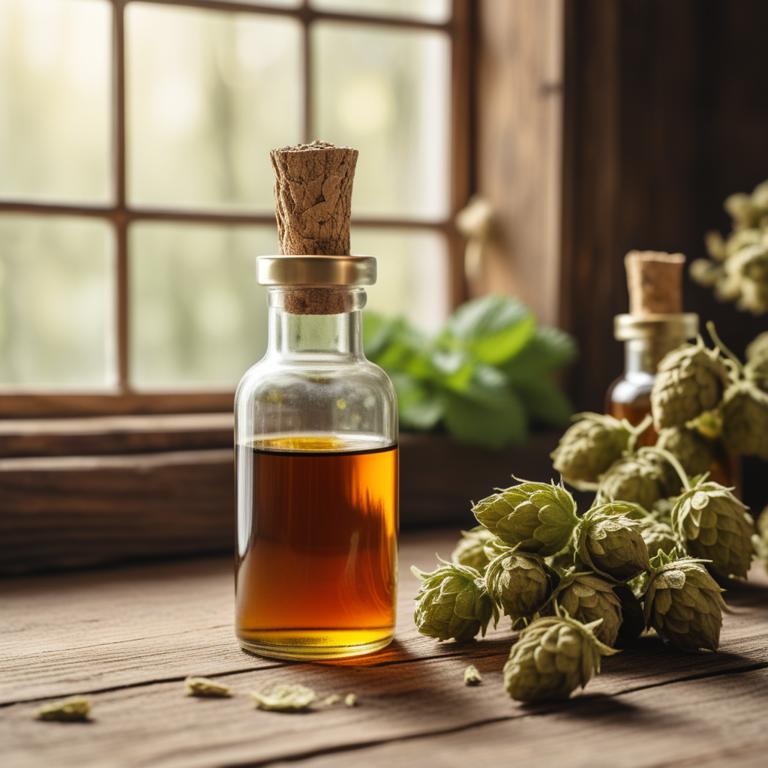
Herbal tinctures for insomnia are concentrated liquid extracts made from various plant-based ingredients, used to promote relaxation and improve sleep quality.
The benefits of using herbal tinctures to treat insomnia include reducing stress and anxiety, promoting relaxation, and regulating the body's sleep-wake cycle.
Some popular examples of herbal tinctures used to treat insomnia include valerian root, which has a calming effect on the nervous system, passionflower, which helps to reduce anxiety and promote relaxation, and lavender, which promotes a sense of calmness and reduces stress.
Additionally, other herbal tinctures such as chamomile, lemon balm, and skullcap are also used to treat insomnia due to their sedative and calming properties, which help to regulate the body's sleep patterns and promote a restful night's sleep.
According to "Phytotherapy research : PTR", tinctures for insomnia made from herbs such as Valeriana officinalis, which acts on the serotonergic and GABAergic systems, may promote sedation and relaxation, thus potentially improving overall sleep time, reducing sleep latency, and enhancing sleep quality.
Below there's a list of the 11 best herbal tinctures for insomnia.
- 1. Valeriana officinalis tinctures
- 2. Passiflora incarnata tinctures
- 3. Lavandula angustifolia tinctures
- 4. Melissa officinalis tinctures
- 5. Hypericum perforatum tinctures
- 6. Zingiber officinale tinctures
- 7. Corydalis yanhusuo tinctures
- 8. Paeonia lactiflora tinctures
- 9. Avena sativa tinctures
- 10. Scutellaria baicalensis tinctures
- 11. Cinchona officinalis tinctures
Also you may be interested in...
TODAY'S FREE BOUNDLE
Herb Drying Checklist + Herbal Tea Shopping List + Medicinal Herbs Flashcards
Enter you best email address below to receive this bundle (3 product valued $19.95) for FREE + exclusive access to The Aphotecary Letter.
$19.95 -> $0.00
1. Valeriana officinalis tinctures
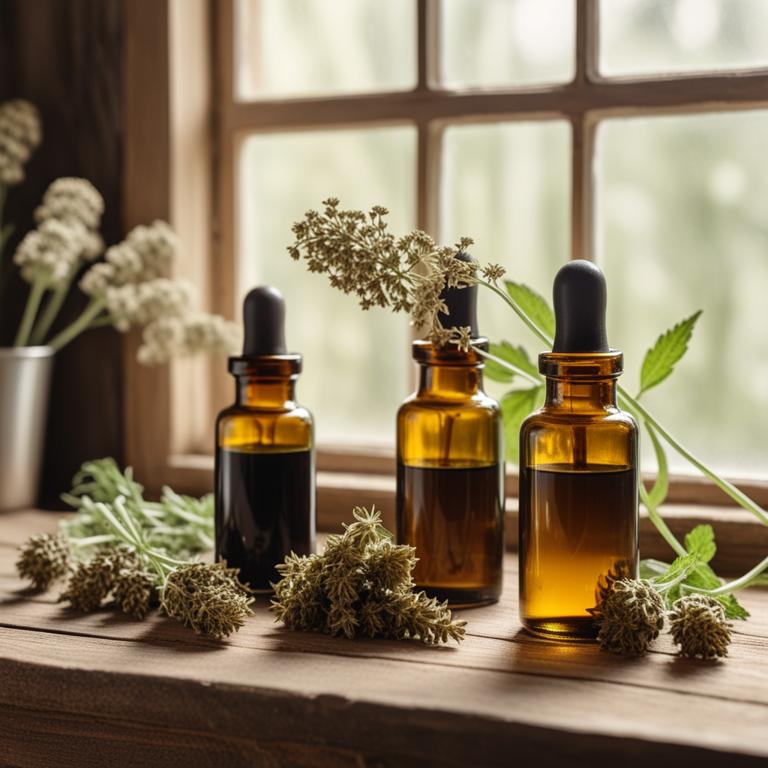
Valeriana officinalis tinctures have been traditionally used to treat insomnia, a common sleep disorder characterized by difficulty falling or staying asleep.
The herbal preparation's sedative properties, which are attributed to its ability to interact with the central nervous system, help to induce relaxation and reduce anxiety, making it easier to fall asleep.
The bioactive constituents, including valepotriates, isovaleryl valerianate, and valerenic acid, are responsible for the sedative and calming effects of the tincture.
By promoting relaxation and reducing stress, Valeriana officinalis tinctures offer a natural and effective way to manage insomnia, improving sleep quality and overall well-being.
Related Study
According to the study evaluating the efficacy of valerian and hops in treating primary insomnia, Valeriana officinalis tinctures, either on its own or in combination with hops, were associated with improvements in some sleep parameters, such as sleep latency and quality of sleep.
2. Passiflora incarnata tinctures
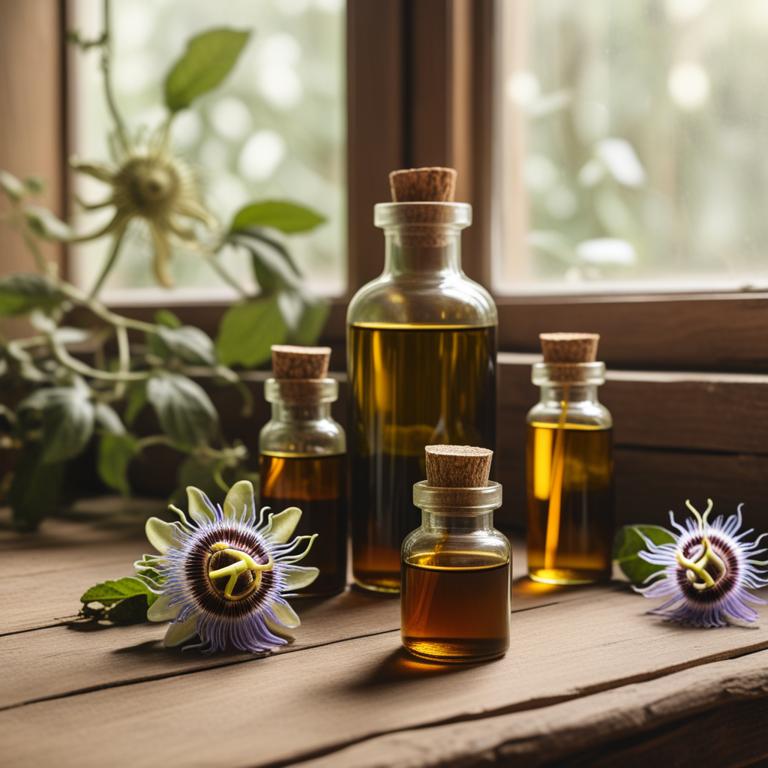
Passiflora incarnata tinctures have been traditionally used to treat insomnia due to their sedative and anxiolytic properties.
The herbal preparation helps to calm the mind and body, promoting relaxation and reducing stress levels, ultimately leading to improved sleep quality.
The bioactive constituents, including flavonoids, alkaloids, and glycosides, in Passiflora incarnata tinctures interact with GABA receptors in the brain, enhancing the effects of the neurotransmitter and promoting relaxation.
Regular use of Passiflora incarnata tinctures has been shown to benefit individuals with insomnia by improving sleep duration, quality, and reducing symptoms of anxiety and stress.
Related Study
According to "Current neuropharmacology", Passiflora incarnata tinctures for insomnia have been found to impact the benzodiazepine receptors and exhibit hypnotic properties, which may help alleviate symptoms of insomnia.
3. Lavandula angustifolia tinctures
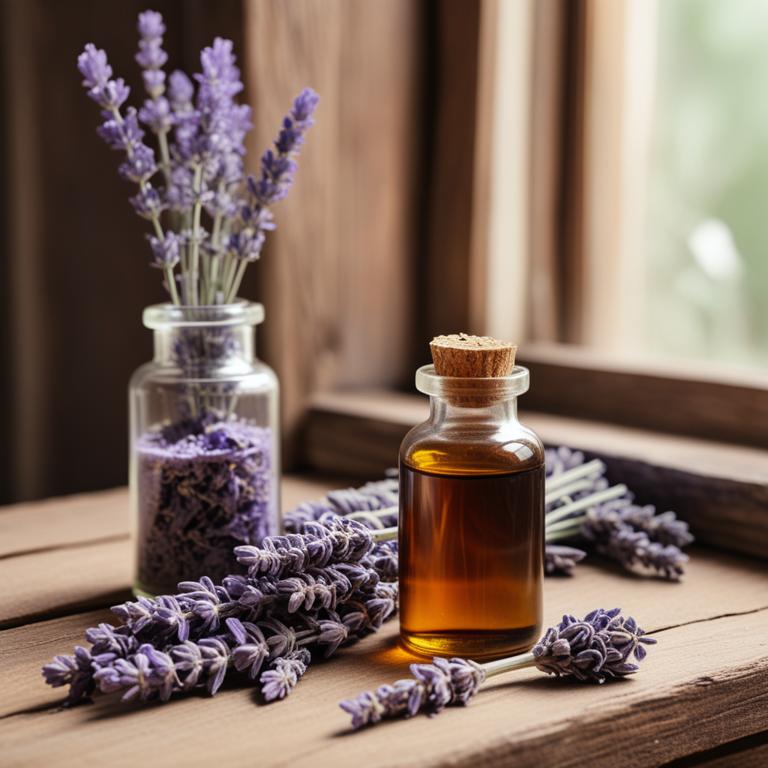
Lavandula angustifolia tinctures, derived from the flowers of the lavender plant, are a natural remedy for treating insomnia due to their calming and soothing properties.
They help to treat insomnia by promoting relaxation, reducing stress and anxiety, and regulating the sleep-wake cycle, thereby improving the quality of sleep.
The bioactive constituents of Lavandula angustifolia tinctures, including linalool and linalyl acetate, play a crucial role in treating insomnia by interacting with the body's neurotransmitters to produce a calming effect.
The benefits of using Lavandula angustifolia tinctures to treat insomnia include improved sleep quality, reduced stress and anxiety, and a sense of relaxation and calmness, making it a popular natural remedy for promoting restful sleep.
Related Study
According to "Journal of psychopharmacology (Oxford, England)", Lavandula angustifolia tinctures for insomnia may be beneficial, as aromatherapy with lavender is mentioned to improve sleep.
4. Melissa officinalis tinctures
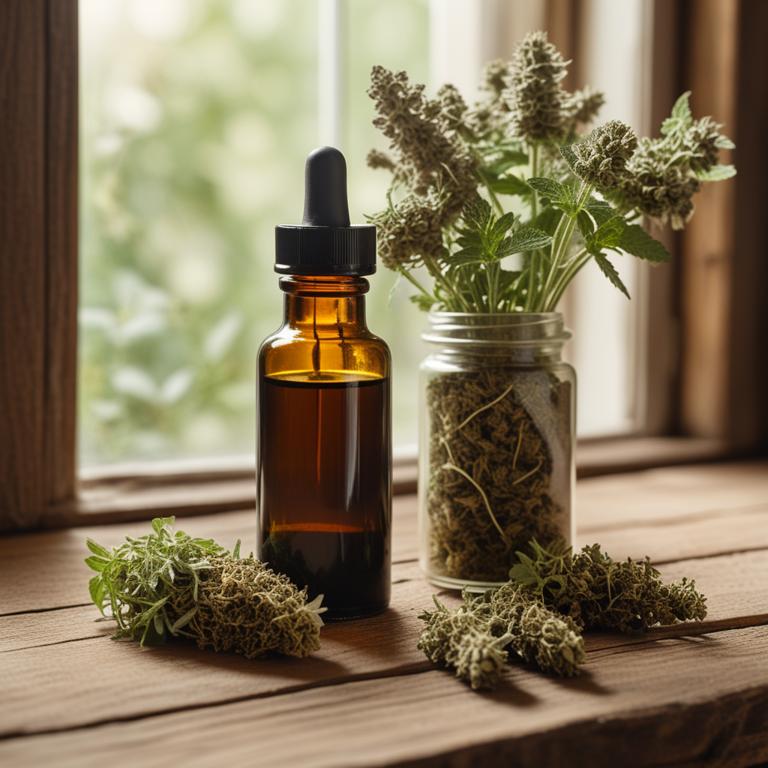
Melissa officinalis tinctures have been traditionally used to treat insomnia due to their calming and sedative properties, which help to promote relaxation and reduce stress levels.
The bioactive constituents of Melissa officinalis, including flavonoids and terpenes, contribute to its therapeutic effects by interacting with the brain's GABA receptors, thereby regulating sleep patterns.
By promoting a state of relaxation and reducing anxiety, Melissa officinalis tinctures can help individuals fall asleep faster and improve the quality of their sleep.
The benefits of using Melissa officinalis tinctures to treat insomnia include improved sleep duration, reduced symptoms of anxiety and depression, and a general sense of well-being.
Related Study
According to "Journal of alternative and complementary medicine (New York, N.Y.)", Melissa officinalis tinctures for insomnia showed a significant decrease in insomnia severity and improved sleep quality, particularly when combined with Nepeta menthoides, resulting in a notable reduction in the mean difference of ISI and total PSQI scores and a significant increase in total sleep time.
5. Hypericum perforatum tinctures
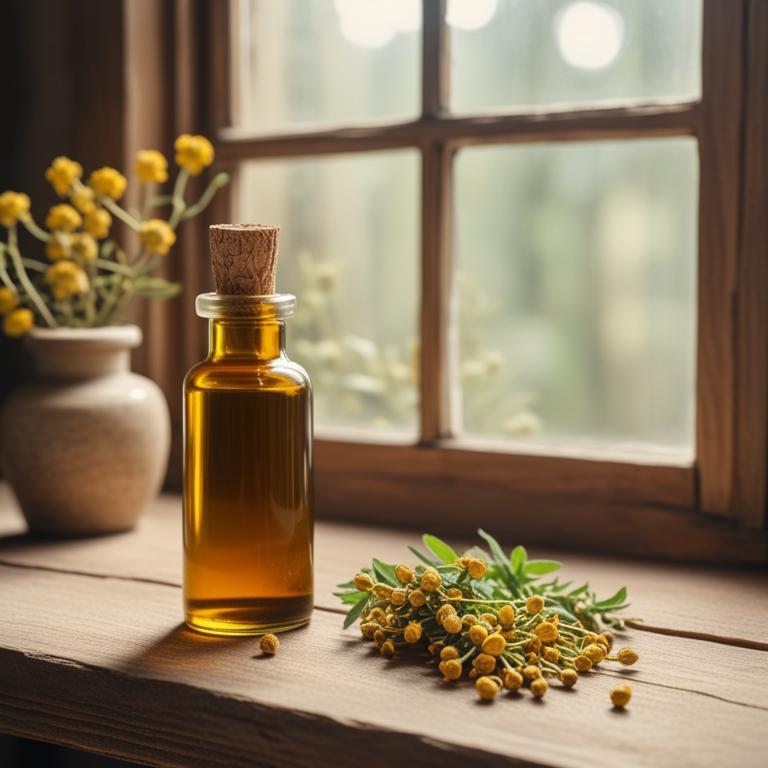
Hypericum perforatum tinctures, derived from the St. John's Wort plant, are a natural herbal remedy used to treat insomnia due to their sedative and anxiolytic properties.
The tinctures help to induce relaxation and improve sleep quality by reducing stress and anxiety levels, allowing individuals to fall asleep faster and sleep more soundly throughout the night.
The bioactive constituents of Hypericum perforatum, including hyperforin and hypericin, have been shown to have a positive effect on the body's sleep-wake cycle by influencing neurotransmitters such as serotonin and dopamine, which play a crucial role in regulating sleep patterns.
By promoting a restful night's sleep, Hypericum perforatum tinctures provide numerous benefits, including improved mental clarity, reduced fatigue, and enhanced overall well-being.
6. Zingiber officinale tinctures

Zingiber officinale tinctures, derived from the ginger root, have been traditionally used to treat insomnia due to their sedative and calming properties, which help to soothe the mind and body, promoting relaxation and reducing anxiety.
The bioactive constituents of Zingiber officinale, such as gingerols and shogaols, have been found to possess anti-inflammatory and antioxidant properties, which contribute to their sleep-promoting effects.
By reducing inflammation and stress, Zingiber officinale tinctures help to regulate sleep patterns and improve the quality of sleep, making it an effective herbal remedy for insomnia.
The benefits of using Zingiber officinale tinctures to treat insomnia include improved sleep quality, reduced anxiety and stress, and a sense of calm and relaxation, making it a natural and holistic approach to addressing this common health issue.
Related Study
According to "Journal of pharmacobio-dynamics", Zingiber officinale tinctures may help with insomnia due to the prolonged hexobarbital-induced sleeping time observed after administration of its pungent constituents (6)-gingerol and (6)-shogaol.
7. Corydalis yanhusuo tinctures
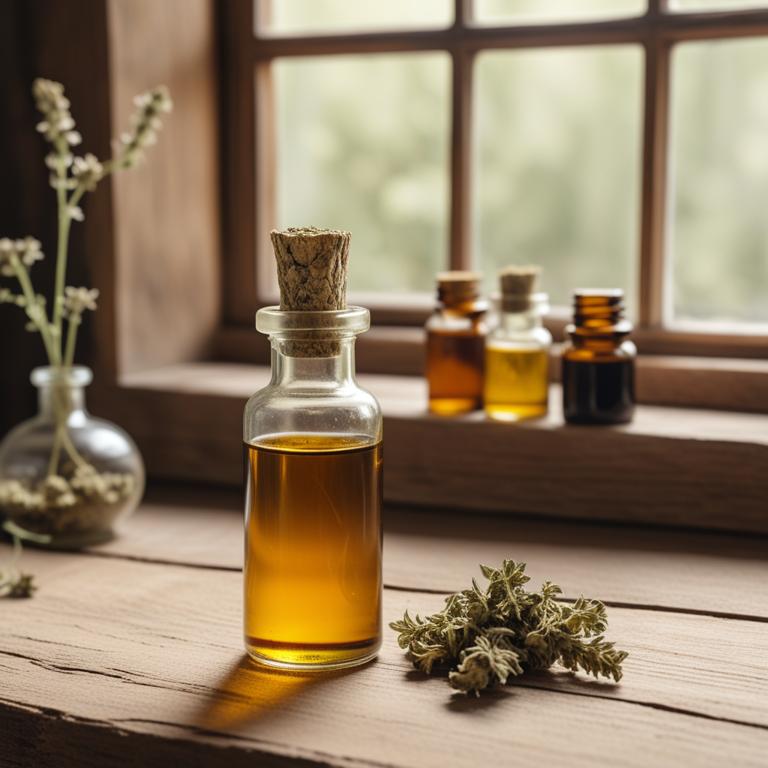
Corydalis yanhusuo tinctures have been traditionally used to treat insomnia due to their sedative and hypnotic properties, which help to induce relaxation and reduce stress levels.
This herbal preparation contains bioactive constituents such as tetrahydroprotoberberine alkaloids, including palmatine and reticuline, which have been shown to exhibit GABA receptor agonist activity, promoting a calming effect on the nervous system.
The use of Corydalis yanhusuo tinctures to treat insomnia may help to regulate sleep patterns, improve sleep quality, and increase the duration of sleep.
The benefits of using this herbal preparation include improved sleep hygiene, reduced symptoms of anxiety and depression, and a natural alternative to pharmaceutical sleep aids.
8. Paeonia lactiflora tinctures
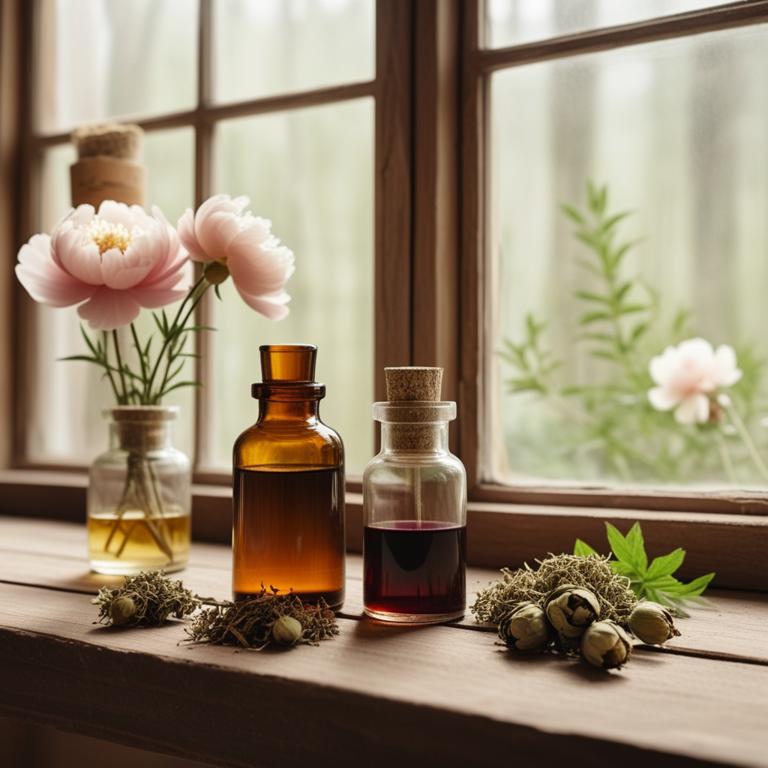
Paeonia lactiflora tinctures have been traditionally used to treat insomnia due to their sedative and calming properties, which help to promote relaxation and reduce stress levels.
The bioactive constituents, including isoflavones and glycosides, in Paeonia lactiflora tinctures are believed to contribute to its sleep-promoting effects by regulating the body's sleep-wake cycle and inducing a sense of calmness.
This herbal preparation helps to treat insomnia by acting on the body's neurotransmitters, such as GABA and serotonin, to promote a restful and peaceful sleep.
The benefits of using Paeonia lactiflora tinctures to treat insomnia include improved sleep quality, reduced anxiety and stress levels, and a sense of relaxation and calmness, making it a potential natural remedy for individuals struggling with sleep disorders.
9. Avena sativa tinctures
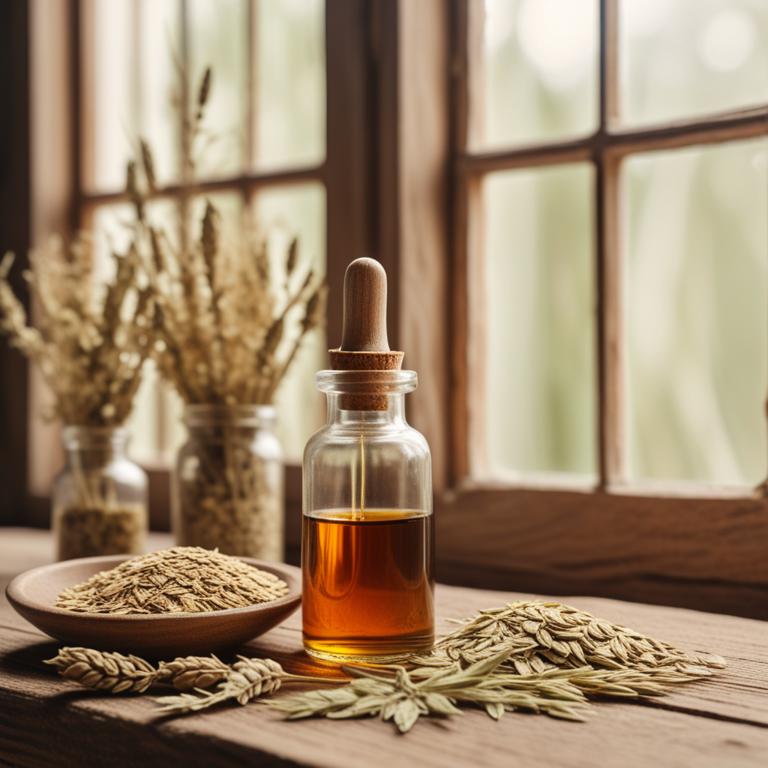
Avena sativa tinctures, derived from the oat plant, have been traditionally used to treat insomnia due to their calming and sedative properties.
This herbal preparation helps to treat insomnia by promoting relaxation, reducing anxiety, and regulating sleep patterns.
Avena sativa tinctures contain bioactive constituents such as avenacoside, avenanthramides, and avenasterol, which have been shown to have a sedative effect on the nervous system and help to improve sleep quality.
The benefits of using Avena sativa tinctures to treat insomnia include improved sleep duration, reduced sleep latency, and enhanced overall sleep quality, making it a popular natural remedy for those struggling with this common ailment.
Related Study
According to "The Journal of nervous and mental disease", Avena sativa tinctures for insomnia may be effective in managing the condition due to its natural bioactive metabolites, which have been reported to have sedative activities with minimal side effects.
10. Scutellaria baicalensis tinctures
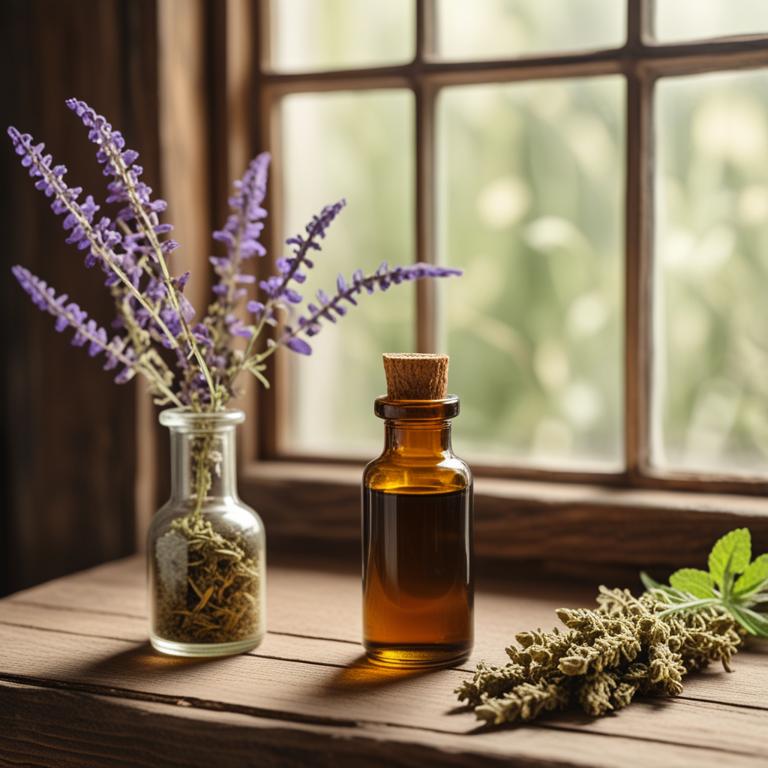
Scutellaria baicalensis tinctures have been traditionally used to treat insomnia, a common sleep disorder characterized by difficulty falling or staying asleep.
The tinctures exhibit sedative and anxiolytic properties, which help to calm the mind and body, making it easier to fall asleep and maintain a restful sleep.
The bioactive constituents, including baicalein, baicalin, and wogonin, have been shown to have a positive effect on sleep quality by reducing stress and anxiety levels, promoting relaxation, and regulating the body's circadian rhythms.
Regular use of Scutellaria baicalensis tinctures has been reported to improve sleep quality, reduce the frequency and duration of insomnia episodes, and promote overall well-being.
11. Cinchona officinalis tinctures

Cinchona officinalis tinctures have been traditionally used to treat insomnia due to their calming and sedative properties, which help to promote relaxation and reduce anxiety.
The tincture's ability to modulate the central nervous system and regulate sleep patterns makes it an effective herbal remedy for addressing sleep disturbances.
The bioactive constituents present in Cinchona officinalis, such as alkaloids like quinine and cinchonine, play a crucial role in reducing restlessness and promoting a restful sleep.
By utilizing Cinchona officinalis tinctures, individuals can benefit from improved sleep quality, enhanced mood, and reduced symptoms associated with insomnia.